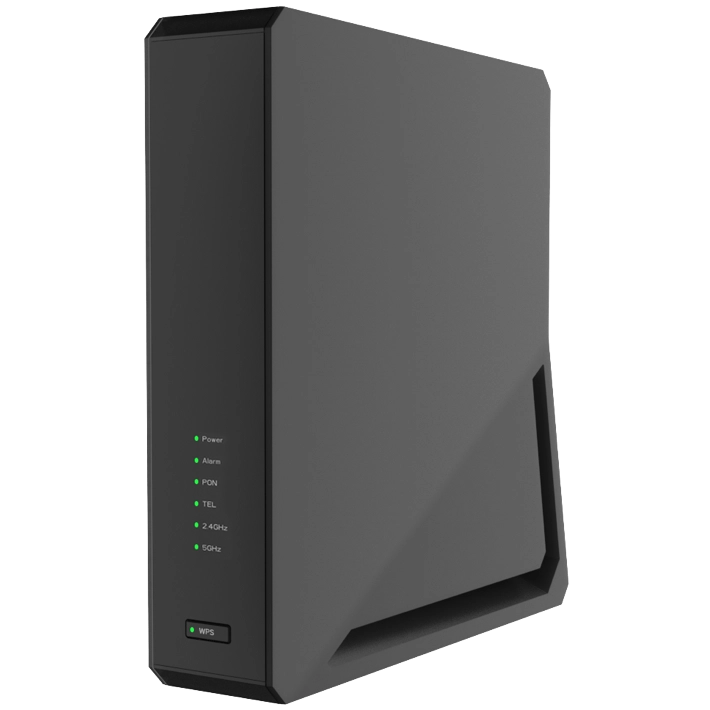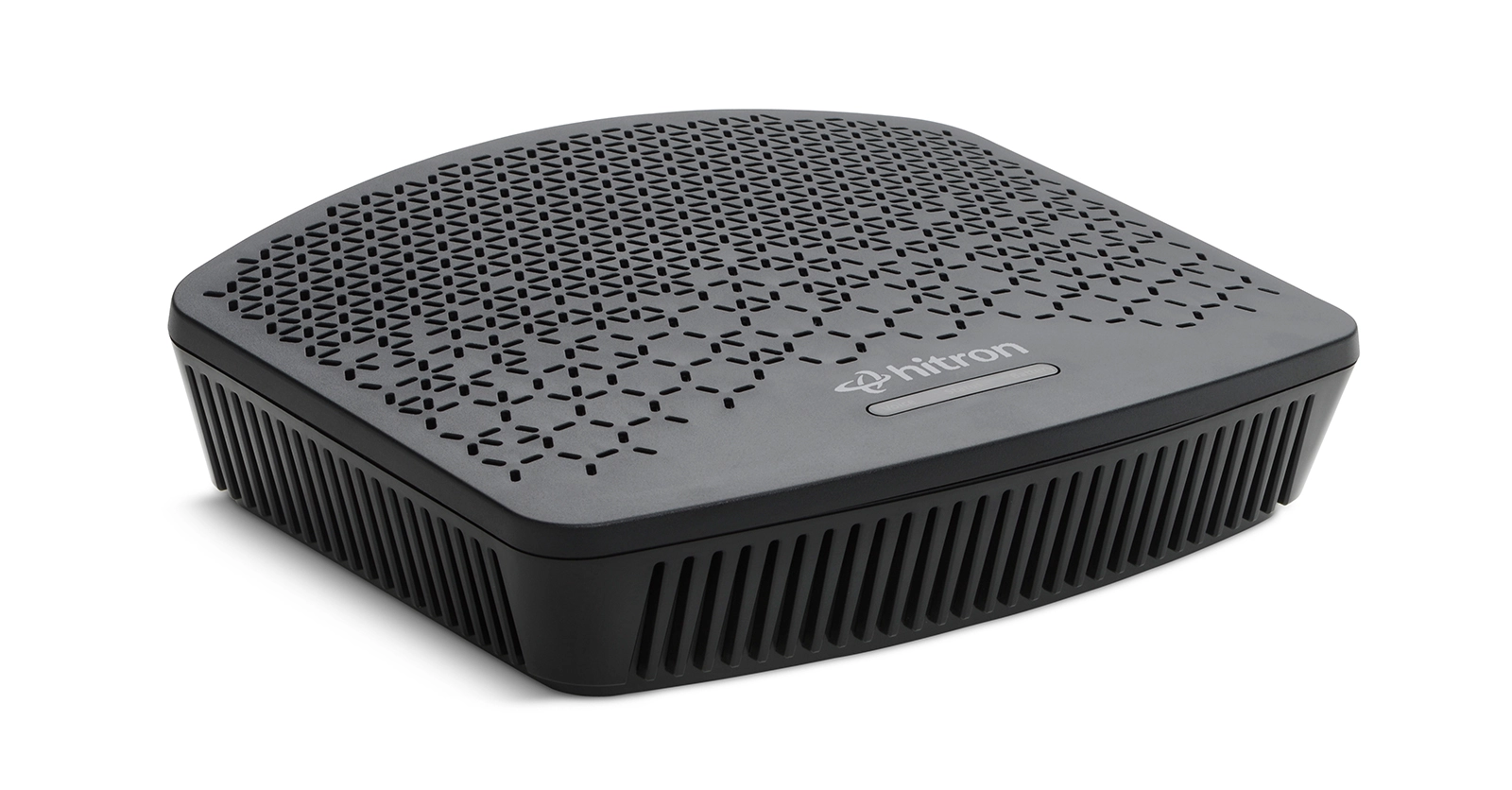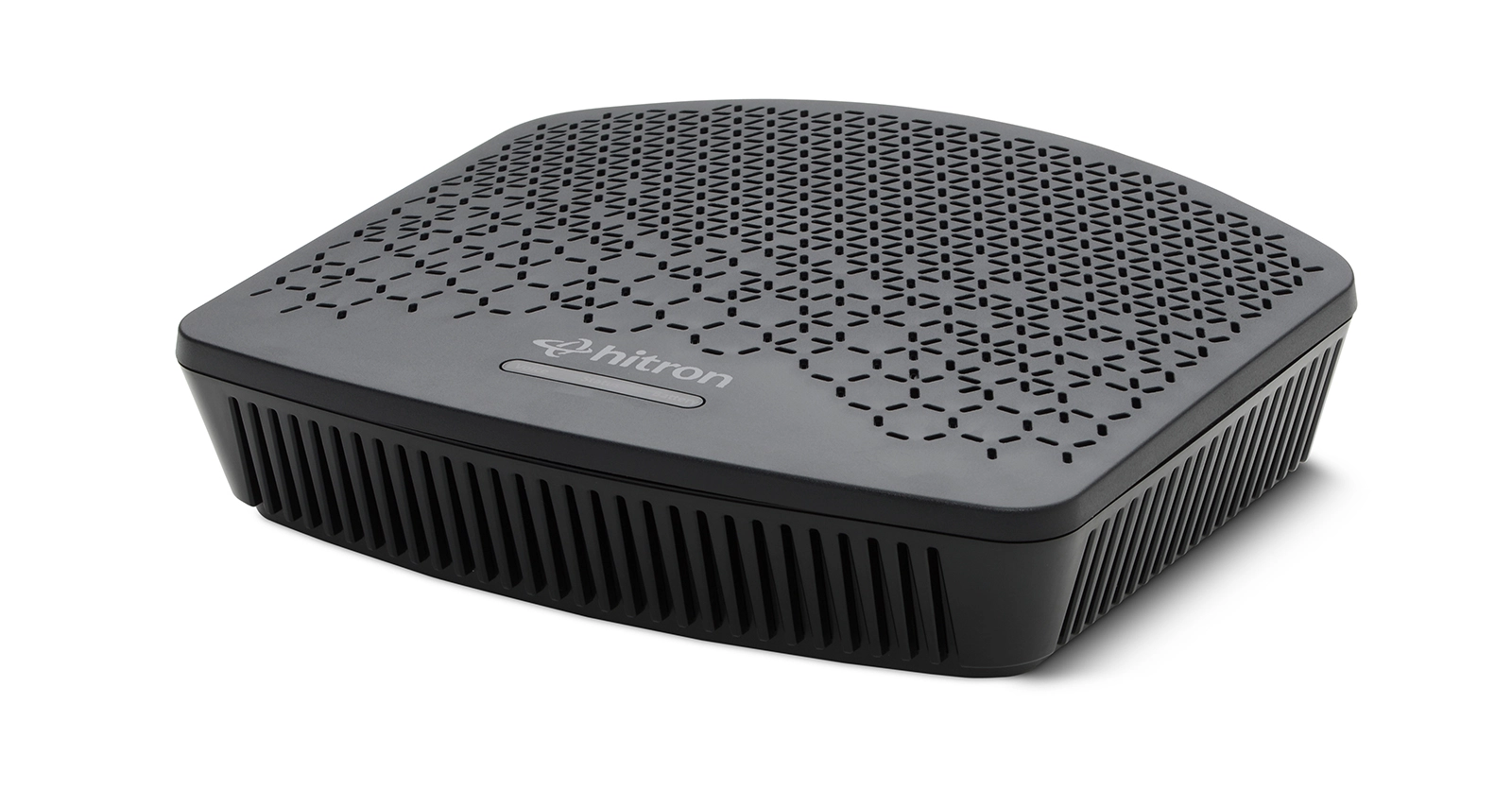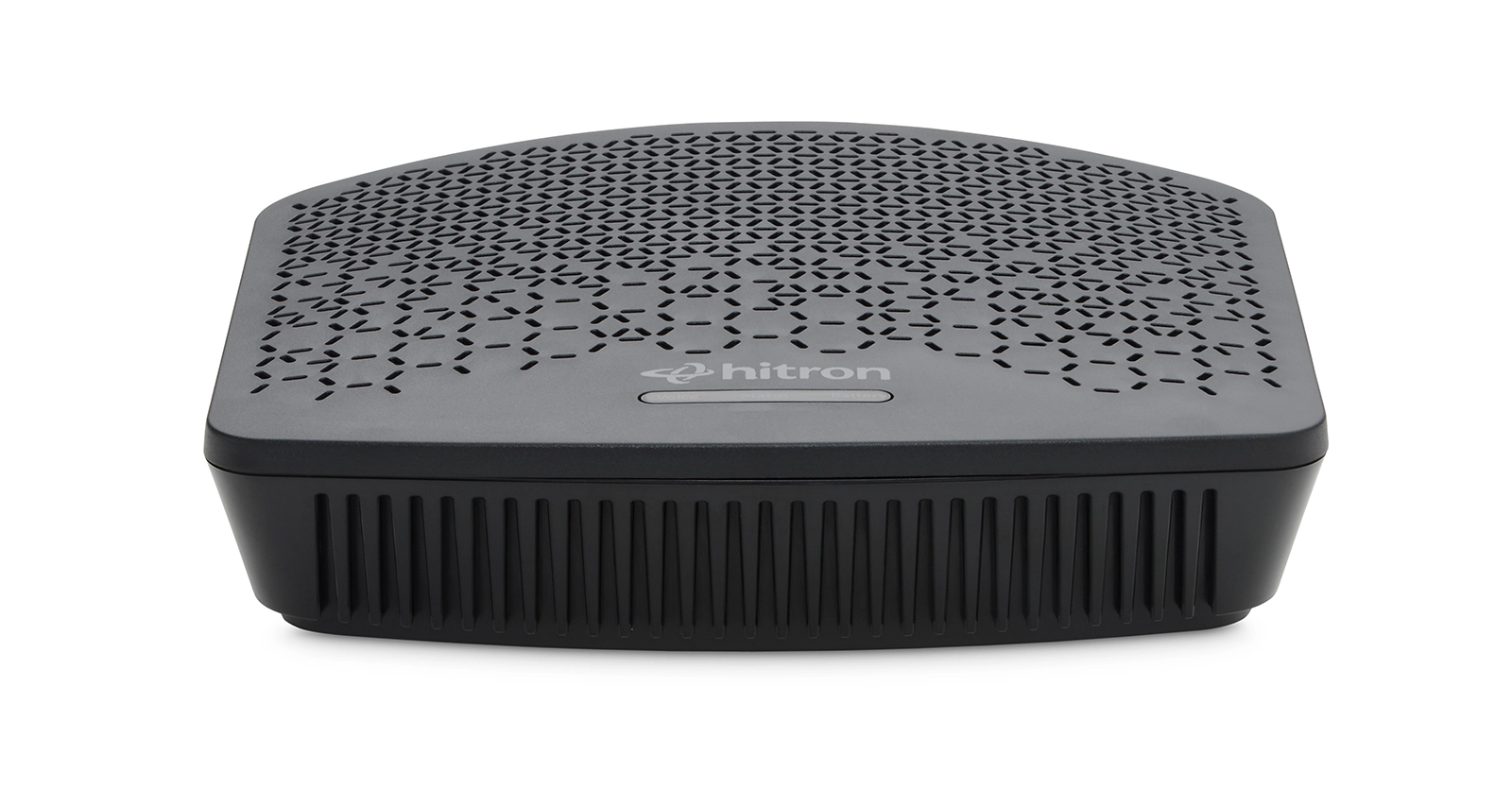10G Fiber Access
XGS-PON uplink with one 10 GbE port and three Gigabit Ethernet ports for wired connectivity.
Dual-Band Wi-Fi 7
4×4 radios on 2.4 GHz and 5 GHz with 4096 QAM, 160 MHz channels, Multi-Link Operation, MU-MIMO, EasyMesh, and seamless roaming (802.11k/r/v).
RF Overlay for TV
Integrated RF overlay interface carries traditional TV signals over fiber and outputs to coax, allowing direct TV connection without set-top boxes.
Voice Ready
Includes one FXS port for HD voice, supporting SIP call control, multiple codecs, and advanced telephony features with optional battery backup.
Carrier-Grade Management
TR-069, TR-369, OMCI, and HitronCloud support enable full provisioning, monitoring, and optimization.
Benefits for Service Providers
- Simplifies deployments by combining ONU and router in one platform.
- Reduces truck rolls with full remote management and monitoring.
- Supports residential and business subscribers with scalable, multi-gig connectivity.
- Provides enterprise-class features including QoS, ACLs, IPTV support, and secure routing.
Key Specifications
- PON Interface: ITU-T G.987.2 XG-PON, ITU-T G.9807.1 XGS-PON
- Ethernet Ports: 1× 10GbE (1/2.5/5/10G) + 3× Gigabit Ethernet
- Wi-Fi: Dual-band Wi-Fi 7 (4×4 2.4 GHz + 4×4 5 GHz), 4096 QAM, 160 MHz channels, MU-MIMO, MLO, EasyMesh
- RF Overlay: 1× coax output for direct TV connectivity
- Voice: 1× FXS port with HD voice, SIP support, full codec suite, and telephony features
- Management: TR-069, TR-369, OMCI (G.988), IEEE 802.3ah OAM, web-based GUI
- Design: Residential gateway with LED indicators, USB 3.0, factory reset, and RF port
PON Gateways
Access Technology
Data Range
Built-in WiFi
10G Ethernet Interfaces: (1G/2.5G/5G/10G)
Voice
---
Learn more about Fiber Optics, ONTs and ONUs
Fiber Optic Internet – A Complete Guide
This Fiber optic Internet guide will give you high-level information about everything you need to know about Fiber. It should help you understand essential information about how to make your WiFi better and how fiber fits into that. In this article, we will cover:...
5 Key Advantages of PON Internet
PON stands for passive optical network. It is a type of fiber-optic network. A PON Internet (shared fiber) system operates on an unpowered network (passive) meaning that it does not require any active components. Instead, it only uses fiber and passive components like...
Does FIOS use Ethernet or coax?
Short answer, FiOS users fiber-optic cables to reach your home. A passive optical network (PON) can bridge to a devices on the customer premises within the individual terminating unit using technologies such as Ethernet or coaxial cables. In other words, the devices...
What is the Difference Between EPON and GPON?
What You’ll Learn If you're comparing EPON and GPON, you’re likely working with or exploring fiber-based Internet networks. This article breaks down the difference between the two technologies, how they work, and what matters most for ISPs and end-users. And if you're...
What is GPON and How Does it Work?
Optical fiber networks operate on different passive optical network (PON) standards. A PON is a network system specific to fiber technology that delivers broadband network access to your home or business. One of many PON standards is GPON. GPON stands for Gigabit...




